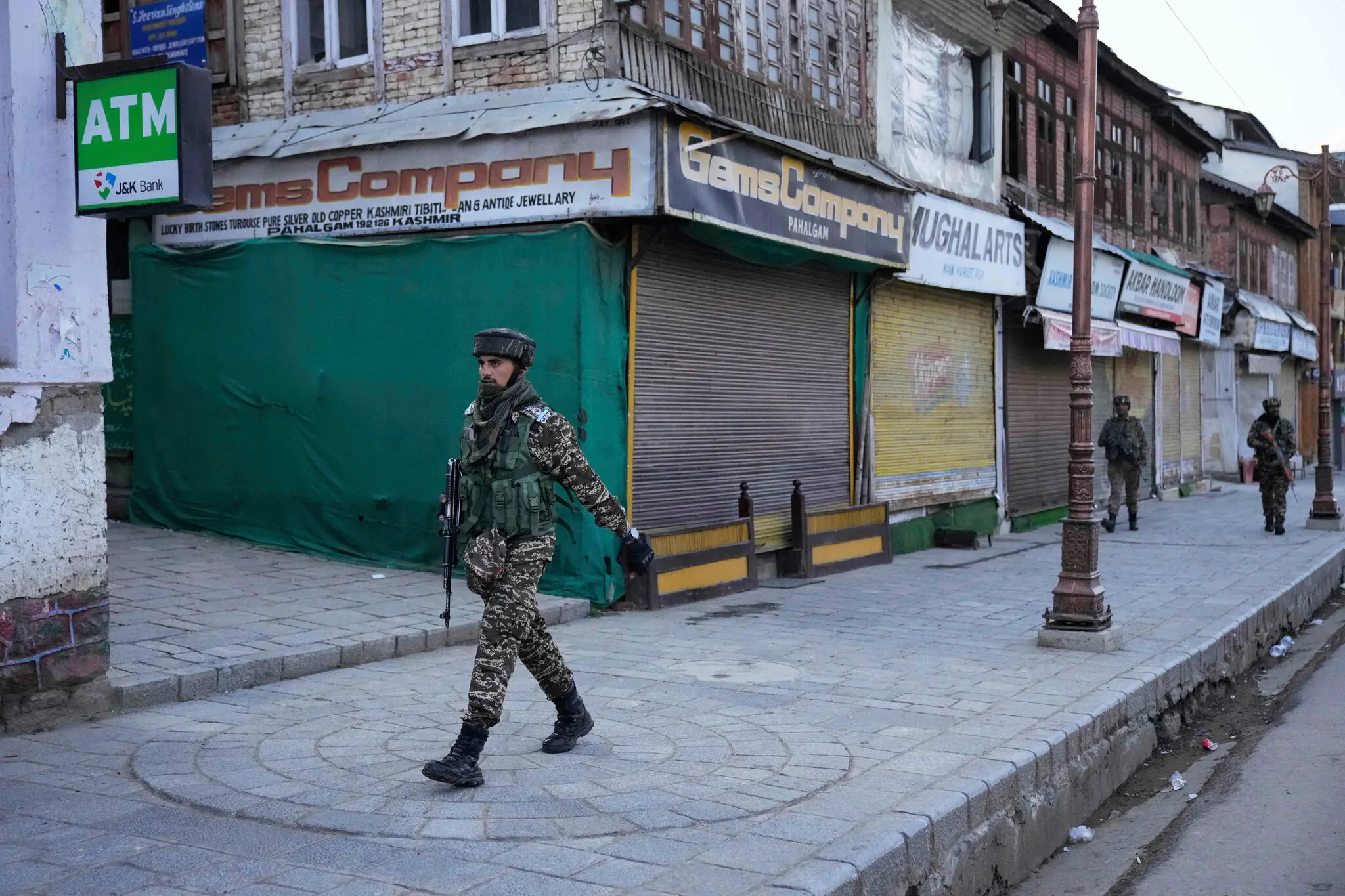Introduction
On April 23, 2025, a horrific attack on tourists in the serene valleys of Pahalgam, Kashmir, left at least 26 civilians dead and dozens wounded. This assault, targeting Hindus and unfolding in a region India had declared “pacified,” has exposed the fragility of New Delhi’s security narrative and reignited fears of cross-border conflict with Pakistan. As India grapples with grief and anger, the world watches to see how this tragedy will reshape the geopolitics of one of Earth’s most volatile regions.
The Attack: A Brutal Wake-Up Call
The militants struck at a scenic picnic spot near Pahalgam, a popular tourist destination, emerging from dense forests to open fire on unsuspecting visitors. Eyewitness accounts and viral footage depict chaos and terror: families fleeing, victims lying bloodied, and a young woman kneeling beside her slain companion. Among the dead was Kaustubh Gunbote, a 60-year-old shop owner from Pune, whose son recounted how his father was executed in front of his mother.
Key Details:
- Victims: 25 of the 26 killed were Hindus, evoking memories of the 1990s exodus of Hindus from Kashmir.
- Perpetrators: While no group has officially claimed responsibility, Indian security sources suspect Pakistan-based Lashkar-e-Taiba, with the lesser-known Resistance Front acting as a proxy.
- Security Lapse: Despite Kashmir’s status as one of the world’s most militarized zones, the attackers faced no resistance for miles, raising urgent questions about intelligence failures.
Political Fallout: Modi’s Strategy Under Scrutiny
Prime Minister Narendra Modi’s government has long touted its hardline policies—revoking Kashmir’s autonomy in 2019 and imposing direct rule—as a success. Officials pointed to rising tourism as proof of stability. But Tuesday’s massacre has shattered that facade.
Domestic Pressure:
- Defense Minister Rajnath Singh vowed to pursue “actors behind the scenes,” signaling potential retaliation.
- Modi cut short a Saudi Arabia trip to chair an emergency security meeting, while Home Minister Amit Shah visited Kashmir to address survivors and mourn victims.
International Ripples:
- The attack coincided with U.S. Vice President JD Vance’s visit to India, who condemned the “devastating terrorism.”
- Pakistan, while denying involvement, faces renewed scrutiny. Its army chief’s recent reference to Kashmir as Pakistan’s “jugular vein” has resurfaced, inflaming tensions.
India-Pakistan: A Tinderbox Reignited
The nuclear-armed rivals have fought three wars over Kashmir since 1947. Recent years saw a fragile cease-fire, but Tuesday’s violence threatens to undo that progress.
Historical Context:
- The 2019 Pulwama attack (which killed 40 Indian troops) nearly sparked all-out war.
- India accuses Pakistan of harboring militants; Islamabad denies this, calling Kashmir a “homegrown” resistance.
Current Risks:
- Analysts fear Modi’s government, facing elections and public outrage, may retaliate militarily.
- China’s encroachment on India’s northern border complicates matters, as New Delhi seeks to avoid a two-front conflict.
Kashmir’s Silent Suffering
Beyond geopolitics, Kashmiris endure the brunt of this cycle of violence:
- A region-wide shutdown paralyzed daily life post-attack, with schools and businesses closed.
- Tourists fled en masse, devastating a recovering economy reliant on tourism.
- Omar Abdullah, Kashmir’s former leader, lamented the exodus but acknowledged, “We understand why people would want to leave.”
Global Implications: Why This Matters
- Regional Stability: Escalation between India and Pakistan risks destabilizing South Asia, with implications for U.S.-China rivalries.
- Counterterrorism: The attack highlights the resilience of militancy despite heavy militarization.
- Human Rights: Kashmir’s Hindu minority faces renewed vulnerability, undermining India’s claims of inclusive governance.
What Comes Next?
- Investigations: Identifying the attackers’ origins and sponsors is critical.
- Diplomatic Channels: International mediation may be needed to prevent another India-Pakistan crisis.
- Kashmir’s Future: Can New Delhi address Kashmiri grievances while ensuring security?
Conclusion
The Pahalgam massacre is more than a tragic loss of life—it’s a stark reminder that peace in Kashmir remains elusive. As India mourns, the world must reckon with the human cost of unresolved conflicts and the peril of complacency. For Kashmiris, caught between geopolitical giants, hope for normalcy feels farther away than ever.







